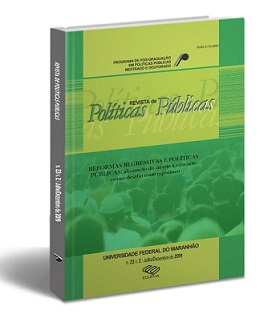FAILURES IN BRAZILIAN PUBLIC SOCIAL PROGRAMS TO REDUCE EXTREME POVERTY: case study Porto Alegre for all
DOI:
https://doi.org/10.18764/2178-2865.v23n2p786-806Palabras clave:
Extrema pobreza, Liberdade, Programas sociais, Necessidades fundamentais humanasResumen
Poverty can be an economic circumstance, but it is also a political issue, since it directly influences several political decisions. The academic literature agrees that fundamental human needs have had, in fact, little development in their concept and scope within recent decades, although significantly changed happened in the Western way of accomplishing needs. We seek to understand different perspectives on possible different paths to a humanist articulation in the development of society. The goal of the research is through a humanistic approach based on Max Neef's theoretical precepts to understand the failure of the social program called Porto Alegre for All, in which less than 10% of the target population adopted the program. The research design had a qualitative phase with interviews with six target individuals, aiming to gain insights for the development of attributes and hierarchy of values for the use of the quantitative technique of joint analysis, made with a sample of 98 individuals. In our research the most important result was the attribute freedom, and the maternal pillar of the family is the great reference of these individuals.
Keywords: Extreme Poverty. Freedom. Social programs. Fundamentals human needs.
Resumo
A pobreza pode ser uma circunstância econômica, mas também é uma questão política. A literatura acadêmica concorda que o conceito das necessidades humanas fundamentais teve, de fato, pouco desenvolvimento na sua atualização e escopo nas últimas décadas, embora mudanças significativas tenham ocorrido no modo ocidental de atender às necessidades. Buscamos a compreensão de diferentes perspectivas sobre os possíveis caminhos diferentes para uma articulação humanista no desenvolvimento da sociedade. O objetivo da pesquisa, é através de uma abordagem humanística baseada em preceitos teóricos de Max Neef compreender o fracasso do programa social denominado Porto Alegre para Todos, no qual menos de 10% da população-alvo adotou o programa. O design da pesquisa teve uma fase qualitativa com entrevistas com seis indivíduos target, com o objetivo de obter insights para o desenvolvimento dos atributos ehierarquia de valores para utilização da técnica quantitativa de análise conjunta, feita com uma amostra de 98 indivíduos. Na nossa pesquisa o
resultado mais importantefoi o atributo liberdade, sendo que o pilar materno da familia e a grande referência destes individuos.
Palavras-chave: Extrema pobreza. Liberdade. Programas sociais. Necessidades fundamentais humanas.
Descargas
Descargas
Publicado
Cómo citar
Número
Sección
Licencia
UNIVERSIDADE FEDERAL DO MARANHÃO
PROGRAMA DE PÓS-GRADUAÇÃO EM POLÍTICAS PÚBLICAS
REVISTA DE POLÍTICAS PÚBLICAS
Termo de Transferência de Direitos Autorais
Como condição para a submissão, os autores devem declarar a autoria do trabalho e concordar com o Termo de Cessão de Direitos Autorais, marcando a caixa de seleção após a leitura das cláusulas)
- Declaro que participei da elaboração do trabalho referido, em parte ou no todo; que não omiti qualquer ligação ou acordo de financiamento entre os autores e instituições ou empresas que possam ter interesses na publicação desse trabalho;
- Declaro tratar-se de texto original, isento de compilação, em parte ou na íntegra, de minha autoria ou de outro (os) autor (es);
- Declaro que o texto não foi enviado a outra revista (impressa ou eletrônica) e não o será enquanto a possibilidade de sua publicação esteja sendo considerada pela RPP;
- Declaro que transfiro os direitos autorais do trabalho especificado para a RPP, comprometendo-me a não reproduzir o texto, total ou parcialmente, em qualquer meio de divulgação, impresso ou eletrônico, sem prévia autorização dessa Revista.
- Declaro que tenho conhecimento que a cessão do texto à RPP é gratuita e, portanto, não haverá qualquer tipo de remuneração pela sua utilização.

Este obra está licenciado com uma Licença Creative Commons Atribuição-NãoComercial-SemDerivações 4.0 Internacional.







